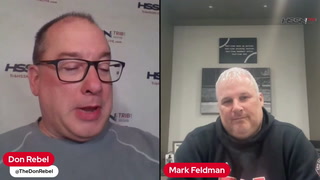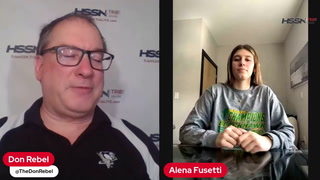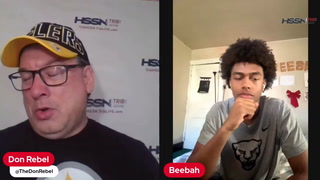How public-private legislation would alter Pa. high school sports landscape
By:
Saturday, June 15, 2019 | 6:29 PM
In the hot-button debate over public and private school athletics, the PIAA has consistently said state legislation from 1972 prevents the organization from splitting the schools into separate playoffs.
So, a group of public school administrators with roots in Western Pennsylvania set out to have the law changed.
Led by Laurel superintendent Leonard Rich and Millcreek Township superintendent Bill Hall, the Pennsylvania Athletics Equity Committee worked with state Rep. Aaron Bernstine (R-Beaver/Butler/Lawrence) and the Pennsylvania Catholic Conference to write new legislation.
Berstine announced House Bill 1600 on Tuesday, named the Parity in Interscholastic Athletics Act. The legislation would need approval from the state house, senate and Gov. Tom Wolf to become law.
Here’s a look at how the proposed legislation would change the current landscape of high school sports in Pennsylvania.
SEPARATE PLAYOFFS
Currently, all PIAA schools compete head-to-head in the same postseason tournaments, but this legislation would have public and nonpublic teams compete for separate state titles.
A number of traditional public schools have complained for years that so-called nonboundary schools (private, parochial and charter) have an unfair competitive advantage because they have students from multiple communities. For example, in boys basketball, nonboundary schools won five of the six state championships this past season.
Moon was the only traditional public school to celebrate a boys title in Hershey.
This legislation would move private and parochial schools into their own nonpublic tournament in football, boys and girls basketball, baseball, softball, boys and girls soccer, and girls volleyball. The proponents backing the legislation chose those eight team sports because they showed a statistical disparity between public and nonpublic success.
Under the revamped playoff format, there would be two separate playoff brackets with an equal number of public and nonpublic qualifiers. Both a public and a nonpublic state champion would be crowned, and then those two teams would compete to be named the overall state champion.
With boys and girls combined, the PIAA would hold 36 basketball championship games in a six-classification format.
The PIAA administration, which has no appetite to separate schools, has roundly criticized the legislation. PIAA executive director Bob Lombardi called the legislation “poorly crafted at best.”
One complaint about the proposal from traditional public schools has been they will still have to compete with charter schools. Charter schools are legally public schools, Bernstine said, so they can’t be separated.
This past basketball season, four charter schools won PIAA boys basketball state titles: Sankofa Freedom, Math Civic and Science, Lincoln Park and Imhotep.
Pros: More schools, both public and private, would be able to hang a state championship banner in their gyms, easing the animosity between public and private.
Cons: The split overhauls the entire PIAA playoff system, but it doesn’t address the boundary/nonboundary concerns that sparked the public-school anger in the first place.
TRANSFER RULES
Bernstine’s legislation would eliminate nearly all transfer rules used by the PIAA, including those that prevent students from transferring for athletics.
Under current rules, an athlete is ineligible for one year if that transfer was athletically motivated. Additionally, the PIAA added a restriction last summer that makes all transfers after the start of 10th grade automatically ineligible for the postseason unless they qualify for a very limited set of waivers.
The PIAA believes athletically motivated transfers are the root cause for the public/private imbalance and hoped the postseason ban would work as a deterrent.
Under the proposed legislation, those rules would be eliminated, allowing students to transfer to any other school and be immediately eligible to play sports.
The only transfer rule to remain would be a ban on midseason transfers, if that student’s previous team has already completed 50 percent of its regular-season games.
The Pennsylvania Catholic Conference has strongly opposed splitting public and private playoffs in years past, but the elimination of the PIAA transfer rules helped convince the group to back the bill this time.
Pros: Gone would be the unequal enforcement of the PIAA transfer rules from one district to another, long a complaint of the WPIAL board of directors. With no transfer rules, there’s no need for eligibility hearings.
Cons: The haves and have-nots of high school athletics likely would grow farther apart, with the strongest programs adding strength at the expense of the already weak.
DISTRICT COMMITTEES
To secure the backing of private schools, the legislation also includes several provisions meant to boost their representation and their ability to schedule games.
Among them, the number of public and nonpublic members on all 12 PIAA district committees must be proportional to the schools in that district. For example, if 10 percent of a district’s members were nonpublic schools, then 10 percent of the seats on that board must be held by nonpublic school administrators.
Currently, the WPIAL board of directors has one nonpublic school member, Serra Catholic athletic director Bill Cleary.
Pros: Nonpublic schools would have a guaranteed voice in district decisions where many PIAA decisions are made. At-large WPIAL board seats currently are selected by a vote of member schools each year. Because there’s a majority of public schools voting, those candidates could have a built-in advantage.
Cons: Why stop at public and nonpublic? Should there be a certain number of large schools and small schools represented on each district committee? Should there be a certain number of city and suburban schools? Finding the best candidates could become a complicated process.
School schedules
Pennsylvania Catholic Conference director Eric Failing noted some schools he represents have trouble scheduling games. This legislation prohibits the formation of athletics leagues in which nonpublic schools are excluded.
It also does not allow public schools to refuse to schedule private schools and would punish those who forfeit twice in a season. Failing said some public schools use or threaten forfeits as a way to avoid competition.
If a school forfeits twice in a season, it would be banned from the PIAA playoffs under this legislation.
Pros: Catholic schools that struggle to find opponents — especially in rural areas of the state — could have easier access to games against nearby teams.
Cons: Mandating that public schools schedule private schools seems difficult to enforce outside of section games.
Chris Harlan is a TribLive reporter covering sports. He joined the Trib in 2009 after seven years as a reporter at the Beaver County Times. He can be reached at charlan@triblive.com.
More Football
• Westmoreland high school notebook: Penn-Trafford football to honor newest hall of fame class• Central Catholic QB Payton Wehner wins Willie Thrower Award
• What to watch for in WPIAL sports on April 6, 2024: Top WPIAL QB to be honored with Willie Thrower Award
• Vinnie Heller earns Thomas Jefferson’s prestigious Breisinger Award
• Springdale hires Chad Walsh as football coach hoping he can change team’s fortunes







